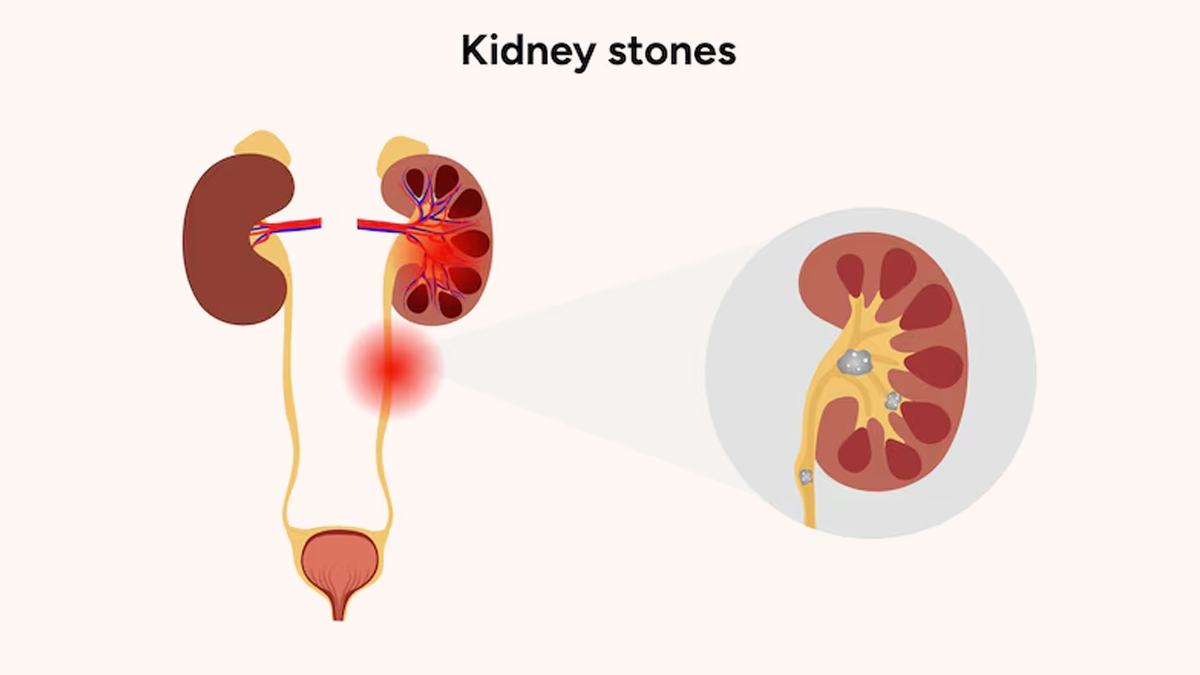
Do you drink beetroot juice first thing in the morning? If yes, it's time to stop this practice immediately as it can do more harm than good. Many people swear by its health benefits, but only a few are aware of its potential side effects. This article explains why you should be cautious while drinking beetroot juice.
Table of Content:-
Side Effects Of Drinking Beetroot Juice
Digestive Issues

Drinking beetroot juice on an empty stomach can give rise to various digestive issues, such as gas, bloating, and indigestion. This is because beetroot juice is high in fibre and natural sugars, which may be difficult for the stomach to process first thing in the morning. If you have a sensitive stomach or a history of digestive problems, you may experience cramping or loose stools after consuming beetroot juice.
Not Good For Liver
Beetroot is nutritious and full of antioxidants, making it a great choice for detoxing. However, it’s important to be mindful of how much you consume. Drinking too much beetroot juice can strain your liver, especially since it contains high levels of betaine, which can build up in the liver and potentially cause problems. If you drink beetroot juice on an empty stomach, it might push your liver to work overtime, which isn’t the best idea for anyone with existing liver issues.
Also Read: Does Beetroot And Carrot Juice Help Reduce Weight? Find Out From The Expert
May Cause Allergic Reactions and Anaphylaxis

Another side effect of beetroot juice is that it may increase the risk of developing allergic reactions, such as anaphylaxis. Anaphylaxis results from an acute immune response to an allergen for which the body has become hypersensitive. Symptoms of an allergic reaction may include itching, hives, swelling, difficulty breathing, and even a drop in blood pressure.
Raises Risk Of Calcium Deficiency
Although beetroot juice is a nutritious drink, it may cause calcium deficiency when consumed in excess quantities. Beetroot juice is rich in oxalates, which can bind with calcium and hinder its absorption in the body. Over time, excessive consumption may lead to calcium deficiency, which can weaken bones and increase the risk of osteoporosis. If you are already low on calcium, it is best to avoid this drink completely.
May Develop Kidney Stones

A study published in Clinical Nutrition Research indicates that beets contain oxalic acid, which contributes to stone formation. Consuming beetroot juice on an empty stomach may increase the absorption of oxalates, leading to a higher risk of calcium oxalate stones in the kidneys. If you have a history of kidney stones or are prone to developing them, it’s best to moderate your beetroot juice intake or avoid it altogether.
Also Read: Menopause And Heart Health: How Beetroot Juice Can Make A Difference
May Cause Problems During Pregnancy
Beets contain dietary nitrates, which can be problematic for pregnant women due to increased sensitivity and higher methemoglobin levels in their blood. Excessive nitrate intake may lead to methemoglobinemia, causing symptoms like fatigue, headaches, dizziness, and a bluish tint around the skin. While most studies haven’t found negative effects on babies from high nitrate levels in groundwater, a 2000 study linked dietary nitrates to neural tube defects. As a result, pregnant women should avoid consuming nitrate-rich beetroot juice.
Bottomline
Beetroot juice can be healthy depending on the time and quantity you are consuming. Instead of drinking it on an empty stomach, consider consuming it with a balanced meal or after eating something light. This can help reduce its potential side effects while allowing you to enjoy its health benefits.
[Disclaimer: This article contains information provided by an expert and is for informational purposes only. Hence, we advise you to consult your professional if you are dealing with any health issue to avoid complications.]
Also watch this video
How we keep this article up to date:
We work with experts and keep a close eye on the latest in health and wellness. Whenever there is a new research or helpful information, we update our articles with accurate and useful advice.
Current Version